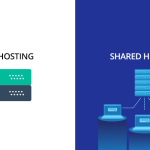In the digital age, where information is constantly being transmitted over the internet, ensuring the security and privacy of this data is crucial. This is where SSL comes into play. SSL, or Secure Sockets Layer, is a fundamental technology that helps protect sensitive information as it travels across the web. In this blog, we'll explore what SSL is, how it works, and why it's so important for websites and online transactions.
Table of contents [Show]
What is SSL?
SSL (Secure Sockets Layer) is a standard security protocol that establishes an encrypted link between a web server and a web browser. This encrypted connection ensures that all data passed between the web server and browser remains private and secure, protecting it from eavesdropping, tampering, or forgery.
While SSL has been widely used for many years, it has largely been replaced by its successor, TLS (Transport Layer Security). However, the term "SSL" is still commonly used to refer to both protocols.
How SSL Works:
- Handshake Process: When a user visits a website with SSL, the browser and server initiate a "handshake" to establish a secure connection. During this process, the server provides a digital certificate to the browser to prove its identity.
- Certificate Validation: The browser checks the validity of the certificate, ensuring it is from a trusted Certificate Authority (CA) and that it hasn't been tampered with. If the certificate is valid, the browser proceeds with the secure connection.
- Encryption: Once the handshake is successful, the browser and server agree on an encryption method to protect the data. All data exchanged between the browser and server is then encrypted, making it unreadable to anyone who might intercept it.
- Data Transfer: With the secure connection established, the user's data (such as login credentials, payment information, or personal details) is safely transmitted between the browser and server.
Why is SSL Important?
SSL plays a critical role in maintaining the security and integrity of data as it travels across the internet. Here are some key reasons why SSL is important:
1. Protects Sensitive Information
The primary purpose of SSL is to protect sensitive information such as credit card numbers, passwords, and personal data. Without SSL, this data is transmitted in plain text, making it vulnerable to interception by hackers. SSL encrypts the data, ensuring that even if it is intercepted, it cannot be read or used by unauthorized parties.
2. Builds Trust with Users
SSL is a key indicator of trust for website visitors. Websites with SSL display a padlock icon in the browser's address bar, along with "https" in the URL. This visual cue reassures users that the site is secure and that their information is safe. Conversely, websites without SSL may display warnings, discouraging users from proceeding.
3. Improves Search Engine Rankings
Google and other search engines prioritize user security and have made SSL a ranking factor in their algorithms. Websites with SSL are more likely to rank higher in search engine results compared to those without it. This means that implementing SSL not only enhances security but also contributes to better visibility and traffic.
4. Ensures Compliance with Regulations
Many regulations and standards require websites to implement SSL to protect user data. For example, the Payment Card Industry Data Security Standard (PCI DSS) mandates the use of SSL for online transactions. Failing to comply with these regulations can result in penalties and legal consequences.
5. Safeguards Against Phishing Attacks
Phishing attacks involve creating fake websites that mimic legitimate ones to trick users into providing sensitive information. SSL helps combat this by verifying the identity of the website and ensuring that users are connected to the genuine site. Browsers can also display warnings for websites with invalid or missing SSL certificates, helping users avoid phishing sites.
6. Enables Secure Online Transactions
For e-commerce websites, SSL is essential for securing online transactions. It protects payment information during checkout, ensuring that customers' financial details are not compromised. Without SSL, customers may hesitate to complete transactions, leading to lost sales and damaged reputation.
Conclusion
SSL is a crucial technology that ensures the security, privacy, and integrity of data transmitted over the internet. By encrypting sensitive information and providing authentication, SSL helps protect users from data breaches, cyber attacks, and identity theft. For website owners, implementing SSL is not just a best practice—it's a necessity for building trust, complying with regulations, and improving search engine rankings. Whether you're running a small blog or a large e-commerce platform, SSL is an essential tool for safeguarding your online presence.







